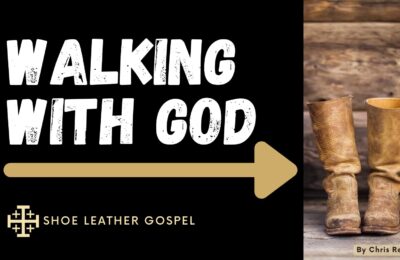Home | Bible Resources | Books of Wisdom
The Book of Psalms: Walking with God in Every Season: Worship, Wisdom, and Witness from the Heart of Scripture
Introduction
The Psalms teach us how to walk with God in every season — with honesty, reverence, and hope.
The Book of Psalms is the inspired prayer book of the covenant people of God. It is theology in poetry, doctrine in devotion, and worship rooted in reality. Spanning the full range of human emotion — from the anguish of abandonment to the ecstasy of deliverance — the Psalms shape the inner life of the believer by forming our thoughts about God, our words to God, and our walk before God. As the most-quoted Old Testament book in the New Testament, the Psalter profoundly anticipates Christ while anchoring us in the character and promises of Yahweh. Structured in five books and written across centuries, Psalms draws worshipers into the unfolding story of redemption, teaching them to cry out in suffering, sing in celebration, and trust in God’s covenant faithfulness even when His face seems hidden.
In a world of noise, Psalms tunes our hearts to the voice of the Shepherd. It does not offer sanitized religion, but raw, reverent faith — lived out in a broken world, clinging to an unbreakable Word. This book trains our affections, disciplines our emotions, and renews our minds through worship rooted in God’s truth. Whether we are weeping in exile or rejoicing in God’s presence, the Psalms form a theology of the heart that sustains a resilient walk with God.
1. Title, Author, and Date
The Book of Psalms is the Spirit-breathed hymnbook of Israel — a collection of inspired prayers, praises, laments, and songs that span centuries. It reveals the heartbeat of God’s covenant people and offers a theological compass for every human emotion.
- Hebrew Title: תְּהִלִּים (Tehillim, “Praises”)
- Greek Title: Ψαλμοί (Psalmoi, “Songs to the Accompaniment of Stringed Instruments”)
- Traditional Authorship:
- David (attributed ~73 psalms)
- Asaph (12 psalms)
- Sons of Korah (11 psalms)
- Solomon (2 psalms: 72, 127)
- Moses (Psalm 90)
- Heman and Ethan (1 psalm each)
- Anonymous (~50 psalms)
- Date & Composition:~1400–400 BC. Spanning the Exodus generation (Moses) through the post-exilic community, the Psalms were likely compiled into their final form during or after the Babylonian exile.
- Role in Redemptive History:Psalms connects Israel’s worship to God’s unfolding covenantal plan. It gives poetic expression to longing for Messiah, obedience under the Law, and confidence in Yahweh’s kingship.
Book Stats:
Chapters: 150
Verses: 2,461
Approx. Word Count: 43,743 (LSB)
Longest Chapter: Psalm 119 (176 verses)
Shortest Chapter: Psalm 117 (2 verses)
2. Purpose and Themes
Psalms trains the soul to worship God in every circumstance — in joy and in sorrow, in confession and in celebration. It provides theology set to music and offers a model of honest, God-centered spirituality.
- Central Purpose:To guide God’s people in worship, prayer, and meditation, drawing them into deeper communion with the covenant Lord.
- Major Doctrinal Themes:
- The Sovereignty and Kingship of Yahweh
- God’s Covenant Faithfulness
- Human sin and divine mercy
- The coming of Messiah
- The importance of Torah (God’s instruction)
- The centrality of worship and trust
- Structural/Literary Features:
- Five Books (mirroring the Pentateuch):I (1–41), II (42–72), III (73–89), IV (90–106), V (107–150)
- Hebrew poetry: Parallelism, chiasms, acrostics (esp. Psalm 119)
- Genres: Hymns, laments, thanksgiving, royal psalms, wisdom, imprecatory psalms
3. Outline
Though not a narrative, Psalms is organized into five books with thematic and theological coherence. It charts a spiritual journey — from personal trust to national hope, from exile to restoration, from lament to praise.
I. Book I: Psalms of Personal Struggle and Trust (Psalms 1–41)
A. The Two Ways: Righteous vs. Wicked (1–2)
B. Prayers of the Afflicted (3–7)
C. God’s Faithfulness to the Righteous (8–18)
D. Psalms of Lament and Confidence (19–41)
II. Book II: Psalms of National Crisis and Deliverance (Psalms 42–72)
A. Longing for God’s Presence (42–49)
B. Triumph and Kingship of God’s Anointed (50–60)
C. Refuge in the Midst of Enemies (61–72)
III. Book III: Psalms of Desolation and Hope (Psalms 73–89)
A. Spiritual Decline and Asaph’s Reflections (73–83)
B. The Fall of David’s House and Plea for Restoration (84–89)
IV. Book IV: Yahweh Reigns — The Eternal King (Psalms 90–106)
A. Return to God’s Faithfulness (90–95)
B. Rejoicing in the Lord’s Kingship (96–100)
C. Remembering God’s Works (101–106)
V. Book V: Psalms of Praise, Pilgrimage, and Preparation (Psalms 107–150)
A. Thanksgiving and Redemption (107–118)
B. Devotion to God’s Word (119)
C. Songs of Ascent (120–134)
D. Final Doxologies and Hallelujah Psalms (135–150)
4. Key Themes and Theological Contributions
Psalms richly contributes to our understanding of God, humanity, worship, and hope. It reveals God’s character in poetic form and foreshadows the Messiah through lament, praise, and royal prophecy.
- Creation → Fall → Redemption → Restoration:
- God’s role as Creator and Sovereign Judge (Pss. 8, 19, 104)
- Man’s sinfulness and need for mercy (Pss. 14, 51)
- God’s covenantal redemption (Pss. 23, 103)
- Future hope in the Messianic reign (Pss. 2, 110, 145)
- Typology and Christological Foreshadowing:
- The rejected cornerstone (Ps. 118:22 → Matt. 21:42)
- The pierced Messiah (Ps. 22 → John 19:24)
- The enthroned King-Priest (Ps. 110 → Heb. 5–7)
- God’s Covenant Faithfulness:
- Praise for His steadfast love (hesed) endures forever (Ps. 136)
- Deliverance in distress (Ps. 34, 46)
- Justice and mercy held together (Ps. 89)
⚔️ Major Rebellions or Turning Points
- Psalm 14 – Universal Corruption: “There is none who does good” highlights the Fall’s depth.
- Psalm 73 – Crisis of Faith: Asaph nearly loses heart seeing the prosperity of the wicked.
- Psalm 89 – Apparent Failure of the Davidic Covenant: Raises questions about God’s promises in exile.
Memory Verse: Psalm 1:2–3 (LSB) — “But his delight is in the Law of Yahweh, and in His Law he meditates day and night. And he will be like a tree firmly planted by streams of water, which yields its fruit in its season and its leaf does not wither — and in whatever he does, he prospers.”
5. Christ in Psalms
Psalms is the most-quoted Old Testament book in the New Testament — the Psalter sings of Christ prophetically, typologically, and devotionally. It anticipates His suffering, resurrection, ascension, priesthood, and reign.
- Messianic Psalms:
- Royal: Psalm 2 (Son enthroned), Psalm 72 (Kingdom righteousness)
- Priestly: Psalm 110 (Melchizedekian priesthood)
- Prophetic/Suffering: Psalm 22 (Crucifixion), Psalm 69 (reproach, zeal)
- NT Fulfillment:
- Luke 24:44 — Jesus declares Psalms spoke of Him
- Acts 2:25–36 — Peter uses Psalm 16 and 110 to prove resurrection and exaltation
Cross-Reference Chart
| OT Psalm | NT Fulfillment |
|---|---|
| Psalm 2:7 | Acts 13:33; Hebrews 1:5 |
| Psalm 22:1 | Matthew 27:46 |
| Psalm 16:10 | Acts 2:31; Acts 13:35 |
| Psalm 110:1 | Matthew 22:44; Hebrews 1:13 |
| Psalm 118:22–23 | Matthew 21:42; Acts 4:11 |
6. Historical and Literary Notes
As ancient poetry, the Psalms reflect both personal and national realities of ancient Israel while maintaining timeless truths through rich literary artistry and theological expression.
- Genre: Hebrew poetry using parallelism, metaphor, lament, and praise
- ANE Parallels: Parallels exist with other ANE hymns and laments, but only Israel’s Psalms are addressed to a sovereign, covenant-keeping God
👤 Key Characters
- David – Shepherd king, warrior poet, author of much of the Psalter
- Asaph – Levitical worship leader and prophetic psalmist
- Korahites – Temple singers who reflect trust and praise
- Moses – Ancient intercessor whose prayer anchors Book IV
- Solomon – Contributed wisdom-infused Psalms of rule and trust
7. Applications for Today
Psalms provides believers with a language for life — for joy, grief, guilt, hope, and praise. It forms the soul through worship, truth, and trust in every season.
- Discipleship: Learn to pray, repent, rejoice, and wait on the Lord
- Worldview: Affirms a God-centered view of creation, justice, kingship, and eternity
- Worship: Anchors Christian worship in truth and reverence
- Suffering & Endurance: Psalms teaches holy lament and unshakeable hope
- Leadership: Models integrity, confession, and confidence in God for all who lead
8. Shoe Leather Discipleship Tie-In
This book shows us that no matter the season — rejoicing or weeping, victory or despair — we are invited to walk honestly and hopefully with God. The Psalms model a raw, reverent faith that clings to the covenant promises of God even when the world feels like it’s falling apart. This is discipleship on the ground: trusting Yahweh, meditating on His Word, worshiping with integrity, and waiting for His final deliverance through His anointed King.







